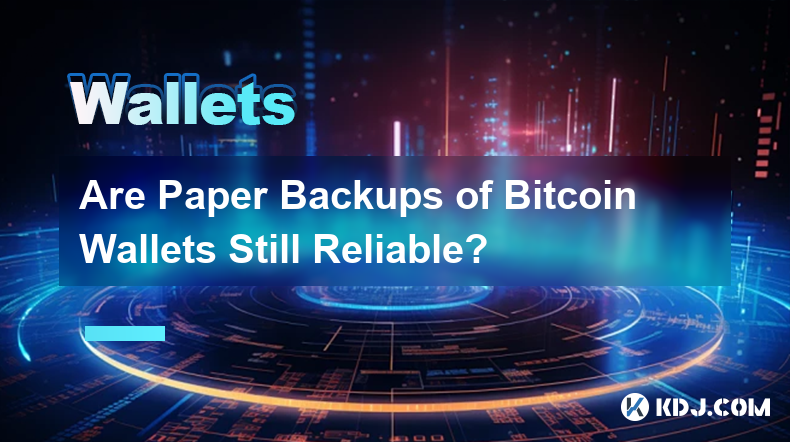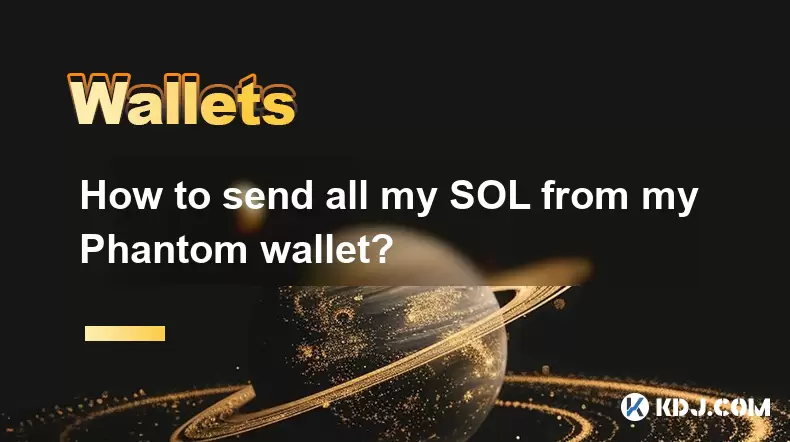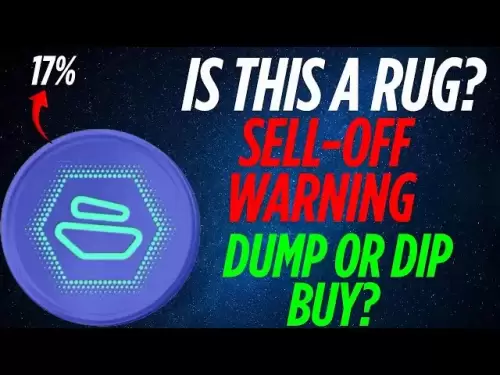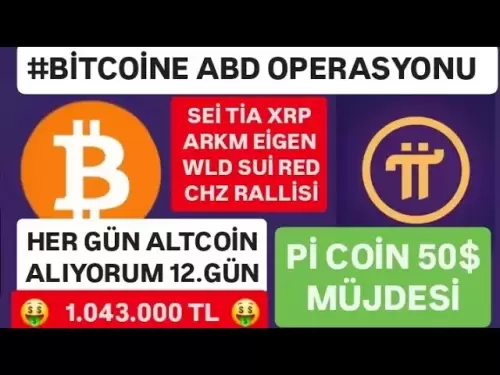-
 Bitcoin
Bitcoin $108,708.8110
0.60% -
 Ethereum
Ethereum $2,561.6057
1.91% -
 Tether USDt
Tether USDt $1.0001
-0.03% -
 XRP
XRP $2.2795
0.57% -
 BNB
BNB $662.2393
1.00% -
 Solana
Solana $153.1346
3.74% -
 USDC
USDC $1.0000
0.00% -
 TRON
TRON $0.2877
0.97% -
 Dogecoin
Dogecoin $0.1710
3.93% -
 Cardano
Cardano $0.5871
1.61% -
 Hyperliquid
Hyperliquid $39.6663
1.68% -
 Sui
Sui $2.9032
0.79% -
 Bitcoin Cash
Bitcoin Cash $496.1879
1.71% -
 Chainlink
Chainlink $13.5807
3.01% -
 UNUS SED LEO
UNUS SED LEO $9.0777
0.61% -
 Stellar
Stellar $0.2514
4.51% -
 Avalanche
Avalanche $18.1761
1.86% -
 Shiba Inu
Shiba Inu $0.0...01173
1.72% -
 Toncoin
Toncoin $2.8010
-4.23% -
 Hedera
Hedera $0.1594
3.21% -
 Litecoin
Litecoin $87.0257
-0.53% -
 Monero
Monero $319.1217
1.79% -
 Polkadot
Polkadot $3.3853
0.68% -
 Dai
Dai $0.9999
-0.01% -
 Ethena USDe
Ethena USDe $1.0003
0.02% -
 Bitget Token
Bitget Token $4.3420
-0.97% -
 Uniswap
Uniswap $7.3772
1.39% -
 Aave
Aave $286.6277
5.61% -
 Pepe
Pepe $0.0...09994
2.33% -
 Pi
Pi $0.4589
1.76%
Are Paper Backups of Bitcoin Wallets Still Reliable?
Despite offering offline Bitcoin storage, paper wallets' reliability depends heavily on robust physical security, meticulous handling to prevent damage or theft, and awareness of evolving technological threats.
Mar 23, 2025 at 03:49 pm

Are Paper Backups of Bitcoin Wallets Still Reliable?
The enduring question of whether paper backups of Bitcoin wallets remain a reliable method of securing cryptocurrency continues to spark debate within the crypto community. While seemingly simple and offline, the security and practicality of this method require careful consideration. Technological advancements, evolving threats, and user error all contribute to the complexity of this seemingly straightforward approach.
One primary concern revolves around physical security. A lost or stolen paper wallet renders its Bitcoin inaccessible. Damage from water, fire, or other environmental factors can also render the private keys illegible, leading to permanent loss of funds. This highlights the critical need for robust physical safeguards, such as multiple backups stored in different secure locations.
The reliability of paper wallets also hinges on the quality of the generation and storage process. Using unreliable methods to generate the wallet or employing substandard paper and ink can lead to degradation over time, rendering the keys unreadable. This emphasizes the importance of using reputable wallet generation software and high-quality, archival-grade materials.
Furthermore, the security of paper wallets is only as strong as the user's precautions. Improper handling, such as exposing the wallet to unauthorized individuals or failing to maintain its secrecy, increases the risk of theft or unauthorized access. A seemingly secure method can be compromised by human error.
Another factor to consider is the evolving landscape of technology. While paper wallets rely on offline security, they are not immune to sophisticated attacks. Malicious actors could potentially use advanced imaging techniques to extract private keys from seemingly secure paper backups. This underscores the need for constant vigilance and awareness of emerging threats.
The process of using a paper wallet also introduces potential points of failure. Incorrectly transcribing the private keys during the generation process, or making a mistake when entering them into a wallet application, can lead to the loss of funds. This emphasizes the crucial need for meticulous attention to detail throughout the entire process.
Let's delve into the specifics of creating and managing a paper wallet backup.
- Generate a wallet: Use a reputable and well-reviewed wallet generator. Verify the integrity of the downloaded software before use.
- Print the keys: Use high-quality, archival-grade paper and a laser printer for optimal durability. Avoid inkjet printers, as the ink can fade over time.
- Store securely: Store the paper wallet in a fireproof and waterproof safe, ideally in multiple locations. Consider using a safety deposit box as an additional layer of security.
- Verify the keys: Before storing the wallet, meticulously check the accuracy of the public and private keys. Any errors could lead to irreversible loss of funds.
- Regularly review security: Stay informed about evolving security threats and best practices to mitigate potential vulnerabilities.
While seemingly simple, paper wallets demand a high degree of caution and diligence. The reliability of a paper wallet hinges entirely on the user's ability to secure it physically and avoid human error.
Common Questions and Answers:
Q: Are paper wallets completely secure?
A: No, paper wallets are not completely secure. While they offer offline protection, they are susceptible to physical theft, damage, and sophisticated attacks.
Q: What is the best way to store a paper wallet?
A: The best storage method involves multiple layers of security: a fireproof and waterproof safe, ideally in multiple locations, and possibly a safety deposit box.
Q: Can I use a regular printer for a paper wallet?
A: It's not recommended. Use a laser printer and high-quality archival paper to prevent ink fading and paper degradation.
Q: What if I lose my paper wallet?
A: If you lose your paper wallet, your Bitcoin is irretrievably lost. There is no way to recover the private keys without the original paper wallet.
Q: Are there alternatives to paper wallets?
A: Yes, hardware wallets offer a more secure and user-friendly alternative to paper wallets. They provide offline storage and robust security features.
Q: How often should I review my paper wallet security?
A: Regularly reviewing your security practices is crucial. Stay informed about new threats and best practices to mitigate potential risks. This is an ongoing process.
Q: Can I use a scanned copy of my paper wallet as a backup?
A: This is strongly discouraged. A scanned copy is not secure and increases the risk of theft or unauthorized access.
Q: What if someone gets a picture of my paper wallet?
A: A high-quality picture could potentially be used to extract the private keys. This emphasizes the importance of keeping your paper wallet completely private and secure from prying eyes.
Q: What type of paper is best for a paper wallet?
A: Archival-quality paper designed to resist fading and degradation is crucial. Avoid regular printer paper.
The security of a paper wallet ultimately rests on the user’s meticulous attention to detail and robust security practices. While offering an offline storage solution, it’s vital to acknowledge its limitations and inherent risks.
Disclaimer:info@kdj.com
The information provided is not trading advice. kdj.com does not assume any responsibility for any investments made based on the information provided in this article. Cryptocurrencies are highly volatile and it is highly recommended that you invest with caution after thorough research!
If you believe that the content used on this website infringes your copyright, please contact us immediately (info@kdj.com) and we will delete it promptly.
- BNB's Bullish Breakout: Riding the $600 Support Level Wave
- 2025-07-08 04:55:13
- Internet Computer, Live Stream, YouTube: What's the Buzz?
- 2025-07-08 04:30:12
- LILPEPE, Bitcoin, 2013: Meme Coin Mania or the Next Big Thing?
- 2025-07-08 04:30:12
- E-Load Super Blast: Sri Lanka's Prize Bonanza!
- 2025-07-08 02:30:13
- Pepe, Blockchain, and Presales: What's the Hype?
- 2025-07-08 03:50:17
- Crypto VC, DeFi Liquidity, and Kuru Labs: What's the Buzz?
- 2025-07-08 02:50:12
Related knowledge

How to cancel a pending transaction in Phantom wallet?
Jul 03,2025 at 07:21pm
Understanding Pending Transactions in Phantom WalletA pending transaction in the Phantom wallet occurs when a user initiates a transfer or interaction with the Solana blockchain, but it hasn't yet been confirmed by the network. This can happen due to various reasons such as low transaction fees, network congestion, or incorrect gas settings. It's import...

How to see the estimated value of my tokens in Phantom wallet?
Jul 04,2025 at 12:21am
What is Phantom Wallet?Phantom wallet is one of the most popular cryptocurrency wallets designed for the Solana blockchain. It allows users to store, send, receive, and manage various tokens built on Solana, including SPL tokens and NFTs. The wallet offers a user-friendly interface, making it accessible for both beginners and advanced users in the crypt...

How to lock my Phantom wallet extension?
Jul 03,2025 at 11:14am
What Is the Phantom Wallet and Why Lock It?The Phantom wallet is a popular non-custodial cryptocurrency wallet designed for interacting with the Solana blockchain. Supporting both browser extensions and mobile apps, Phantom allows users to store, send, receive, and stake SOL tokens, as well as interact with decentralized applications (dApps). Securing y...

Does Phantom wallet offer two-factor authentication (2FA)?
Jul 03,2025 at 09:00am
Understanding Phantom Wallet and Its Security FeaturesPhantom wallet is a widely used non-custodial cryptocurrency wallet that supports the Solana blockchain. It allows users to store, send, receive, and interact with decentralized applications (dApps) seamlessly. As security is a top priority for any crypto wallet user, security features like two-facto...

How to send all my SOL from my Phantom wallet?
Jul 06,2025 at 10:00am
Preparing to Send SOL from Your Phantom WalletBefore initiating any transaction, it is crucial to ensure that your Phantom wallet is fully set up and connected to the correct network. Phantom supports multiple networks, but for sending SOL, you must be on the Solana blockchain. Confirm this by checking the network indicator in the top-right corner of th...

What is "rent" on Solana and how does it affect my Phantom wallet?
Jul 02,2025 at 08:35pm
Understanding 'Rent' on SolanaIn the context of Solana, the term 'rent' refers to a storage fee that users pay for maintaining data on the blockchain. Unlike Ethereum, where storage costs are paid once via gas fees during contract deployment, Solana implements a recurring cost model to ensure efficient usage of network resources. This means that any acc...

How to cancel a pending transaction in Phantom wallet?
Jul 03,2025 at 07:21pm
Understanding Pending Transactions in Phantom WalletA pending transaction in the Phantom wallet occurs when a user initiates a transfer or interaction with the Solana blockchain, but it hasn't yet been confirmed by the network. This can happen due to various reasons such as low transaction fees, network congestion, or incorrect gas settings. It's import...

How to see the estimated value of my tokens in Phantom wallet?
Jul 04,2025 at 12:21am
What is Phantom Wallet?Phantom wallet is one of the most popular cryptocurrency wallets designed for the Solana blockchain. It allows users to store, send, receive, and manage various tokens built on Solana, including SPL tokens and NFTs. The wallet offers a user-friendly interface, making it accessible for both beginners and advanced users in the crypt...

How to lock my Phantom wallet extension?
Jul 03,2025 at 11:14am
What Is the Phantom Wallet and Why Lock It?The Phantom wallet is a popular non-custodial cryptocurrency wallet designed for interacting with the Solana blockchain. Supporting both browser extensions and mobile apps, Phantom allows users to store, send, receive, and stake SOL tokens, as well as interact with decentralized applications (dApps). Securing y...

Does Phantom wallet offer two-factor authentication (2FA)?
Jul 03,2025 at 09:00am
Understanding Phantom Wallet and Its Security FeaturesPhantom wallet is a widely used non-custodial cryptocurrency wallet that supports the Solana blockchain. It allows users to store, send, receive, and interact with decentralized applications (dApps) seamlessly. As security is a top priority for any crypto wallet user, security features like two-facto...

How to send all my SOL from my Phantom wallet?
Jul 06,2025 at 10:00am
Preparing to Send SOL from Your Phantom WalletBefore initiating any transaction, it is crucial to ensure that your Phantom wallet is fully set up and connected to the correct network. Phantom supports multiple networks, but for sending SOL, you must be on the Solana blockchain. Confirm this by checking the network indicator in the top-right corner of th...

What is "rent" on Solana and how does it affect my Phantom wallet?
Jul 02,2025 at 08:35pm
Understanding 'Rent' on SolanaIn the context of Solana, the term 'rent' refers to a storage fee that users pay for maintaining data on the blockchain. Unlike Ethereum, where storage costs are paid once via gas fees during contract deployment, Solana implements a recurring cost model to ensure efficient usage of network resources. This means that any acc...
See all articles

























































































